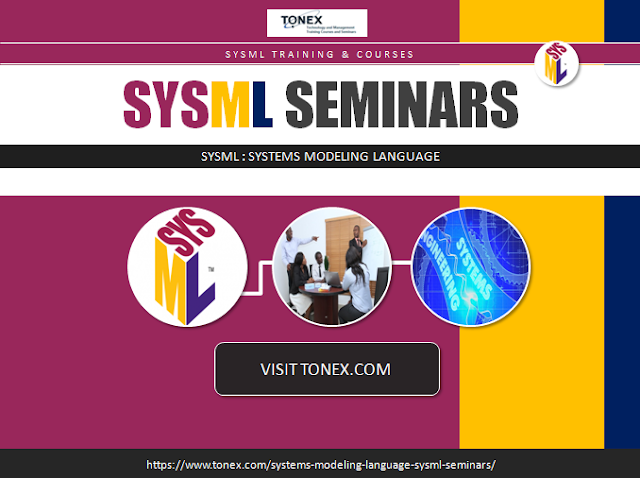SysML Training Courses: Top 4 training courses
Tonex is a leader in both Systems Modeling Language courses and Model-Based Systems Engineering training. Tonex offers many classes in these areas including:
Hands-On MBSE Training / Creating SysML Models Workshop –
A 3-day combo course covering modeling of complex systems, System of Systems (SoS), aerospace, military and advanced deep space applications.
SysML Training Crash Course –
A 4-day course that covers the concepts, requirements, tools and techniques of Systems Modeling Language (SysML).
Advanced SysML Training / Creating SysML Models –
A 3-day course where participants learn to create SysML models using tools and frameworks.
SysML Training / Systems Modeling Language Training
– A 3-day advanced course. Using SysML tools during the hands-on sessions, attendees will create SysML models with a representative SysML tool.
Who Should Attend:
These classes are designed for a wide range of professionals, but especially:
Systems engineers, modelers, architects integrators
Software engineers
Analysts and designers
Product developers
Project leaders and project heads
Request more information. Visit Tonex course links below
SysML Seminars

Comments
Post a Comment